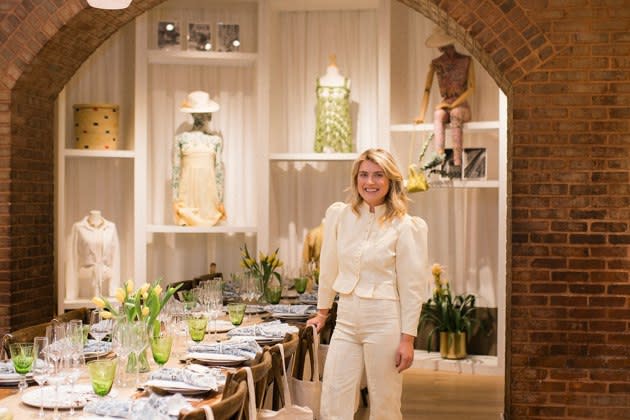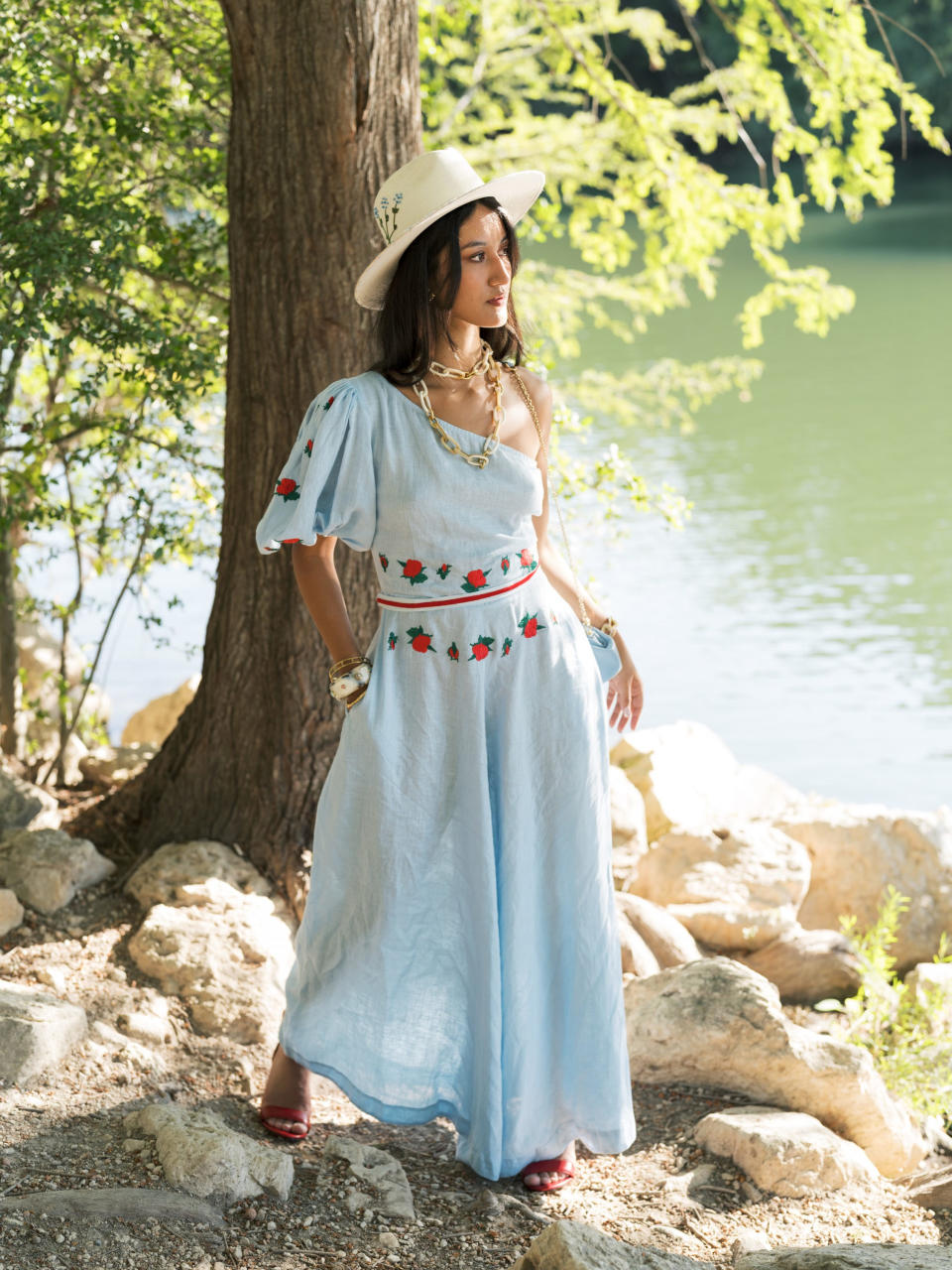How the Retailer HerStory Is Helping Women-led Businesses Sell Luxury Fashion

FORT WORTH, Texas — To promote women-led businesses and point shoppers toward more meaningful consumption, HerStory launched early last year to sell luxury fashion and accessories exclusively from purpose-driven businesses led by women and that pay fair wages.
The young retailer grew out of a subscription service that was introduced in May 2020 to help small women-owned businesses sell their inventory during the pandemic, explained cofounder and chief executive officer Tinsley Merrill Paul.
More from WWD
EXCLUSIVE: Reformation Dives Into Swim, CEO Hali Borenstein Talks Monica Lewinsky, Potential IPO
Cisco Revs Up Fashion and Technology in Its Corporate Stores
Designed as a destination for ethically made, handcrafted luxury items from around the globe, HerStory sells through supportherstory.com, as well as a store in downtown Fort Worth and pop-up shops.
“I love empowering women and these women-led brands that are creating an impact in their communities and changing the cycle of poverty,” Paul said. “We want to make sure that not only are they hitting what is expected from the consumer in terms of quality and sustainability but also ensure the brand is paying more than the expected wage in their country.”

The company, which has been funded by friends and family, has grown rapidly and already hit $1 million in annual revenue, said Paul, adding she expects to achieve profitability next year.
Embellished hats and feminine dresses are some of the bestsellers at HerStory, which also carries a handful of beauty products and tabletop goods.
Top performers include Corazon Playero’s embroidered straw hats from Mexico, Fanm Mon’s embroidered cotton and linen dresses sewn to individual measurements in Turkey, Kahindo’s colorful sportswear from Kenya by “Project Runway” alum Kahindo Mateene and Miguelina’s silk, lace and hand-crocheted resortwear from Brazil.
Other hot items are X Nihilo’s recycled leather bags from Australia, Shea Yeleen’s body balms from West Africa and Gresham’s stackable silicone bracelets, each customized with a letter or symbol in Dallas.
Some items are exclusive to HerStory, which gives vendors feedback on top-performing colors and styles to help build capsule collections.
“We want to know them personally and really see them grow,” Paul said. “We don’t ever want to have only a transactional rapport.”
Each brand’s designer and her backstory are described on the website and through QR codes in the store, and nearly everything is drop shipped to reduce inventory, packaging and transportation.
“I think a lot of people are confused by sustainable versus ethical, so we really try to push the narrative of where your clothes are coming from and how they are making an impact,” Paul said. “You are looking at wearable art and personal stories versus pushing the product. It connects with that luxury customer who has lost touch with that for so long.”
The company stages monthly pop-up shows that are often in private venues in wealthy enclaves, such as Yellowstone Club ski and golf community in Big Sky, Mont. In June, HerStory will have a booth near the entrance to the Food & Wine Fest in Aspen.
The inspiration for HerStory came largely from Paul’s sister, Brittany Merrill Underwood, who established Akola Project in Dallas in 2007 as a nonprofit fashion jeweler that provides living incomes to impoverished women in Uganda. All profits were reinvested in civic services, and the Ugandan women ultimately took ownership of Akola.
Underwood is a HerStory cofounder and adviser along with Whitney Rowell, who created Miracle Milkookies to boost lactation in women who are breastfeeding. The founders all live in Dallas, and HerStory headquarters is at its gallery in Fort Worth.
The company represents about 250 brands that rotate seasonally through the store and website, Paul explained.
Its genesis dates to the start of the COVID-19 pandemic, when Paul’s event-based marketing business crumpled, and Akola faced cancelled orders from retailers. Brainstorming about what to do, Paul, Underwood and Rowell decided to create subscription boxes of small luxury items from women-led brands in Texas and New York. They launched on Mother’s Day in 2020 with 30 brands, including Akola, BeautyBio and Mignonne Gavigan.
The trio were surprised to get 150 orders the first week, which they packed themselves, working out of their garages. Priced from $149 to $300, the boxes continued to sell at a rate of 150 to 200 a week.
“We built it as an immediate help to these brands, but it was not sustainable to grow into a large business,” Paul explains. “After 18 months, the team was exhausted from fulfillment. We had to create a new model or close the business.”
Going online enabled them to sell clothing and other goods that wouldn’t fit into the boxes and enable shoppers to cherry pick their purchases.
Explained Paul, “We wanted to create this inclusive marketplace and really empower international brands in not only accessories but ready to wear, home goods, and really expand into a lifestyle brand.”
Best of WWD


